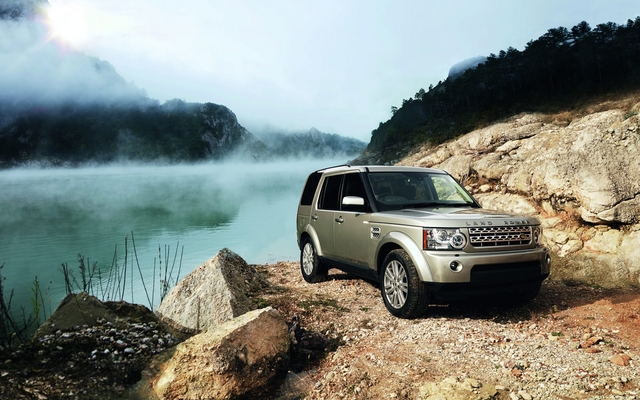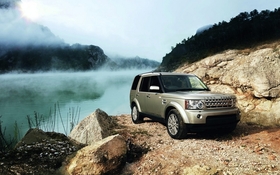2011 Land Rover LR4: A Royal Week

| Strong points |
|
|---|---|
| Weak points |
|
No brand suffers the undeserved reputation of Land Rover. Even the slightest mention of the storied brand’s name to most folks, and odds are that the conversation will rapidly digress into a discussion of their reliability… or supposed lack thereof. But here’s the God’s honest: that’s a load of bovine excrement. And I should know; I’ve built one. Yes, I built myself a Land Rover. Why? Well, because it was dead. But before you take that as an indication to the contrary of my main point, consider this: it look 37 years, countless miles, a career with the British military, and a decade of nearly complete neglect on the rainy, wet, west coast before the truck came up lame thanks to a worn out throwout bearing and a healthy amount of corrosion. So it should come as no surprise then, that a brand-spanking new LR4 with just a handful of easygoing, lazy kilometers on it felt about as solid as the rock of Gibraltar.
So too it should have, what with its curb weight that’s only slightly less than that of the famous Mediterranean maritime navigational aid. Crushing tarmac and dirt alike with the impossible force of nearly 5,800 pounds, the LR4’s weight is even more impressive when you consider that it measures just a few inches longer, wider, and taller than Toyota’s 3,360-pound RAV-4. But it’s not a vehicle occupying markets in which flyweight components, carbon fibre, and titanium reign supreme, and there isn’t a single pound of mass beneath the LR4’s handsome sheetmetal that isn’t put to good use.
Take, for example, the relatively large assembly of various alloys and plastics that resides under the hood. Now displacing 5.0 litres and borrowed from the Jaguar parts bin, this new engine is almost indescribably good. Producing both the lusty sounds you would expect of a Jaguar-sourced V8 and the power to match (375 horsepower, to be exact), this new engine and the 6-speed ZF automatic gearbox it’s paired with are both dramatic improvements over the tired 4.4 litre V8 that could trace its lineage back almost two decades to when BMW owned the brand.
Likewise the excellent suspension and chassis, obviously not exactly a collection of lightweight components, is also equally improved. Retaining the air-suspension system and much-touted Land Rover Terrain Response system, it feels as if just about everything else that’s responsible to keeping the wheels attached has been significantly revised. The ride is much suppler over road irregularities, and the handling finally seems to have realized the improvements that are intrinsic to the independent suspension that replaced Land Rover’s old solid axles. While the old truck’s air springs provided similar performance under compression, the new truck’s damping feels much more composed, much more buttoned-down. Also, gone is the somewhat vague, unresponsive helm, replaced by a lighter, more linearly-weighted steering wheel. Paired with the so-polite-it-must-be-British suspension’s performance, it’s a truck that feels equally at home threading it’s bulk through downtown Vancouver’s snarled traffic as it does bombing down some forlorn stretch of disused macadam.
But, if the LR4 has a party piece, it’s the way all of these new and improved facets combine to create a car that’s among the most luxurious, composed, and relaxed I’ve ever driven. Being an area in which nature and poor city planning seem to have conspired to keep the average commuter hemmed in by countless rivers and tributaries spanned only by too-small bridges and tunnels, Vancouver is simply not a pleasant place to drive. The third largest city in the country with a downtown core made up almost entirely of two-lane roadways rapidly being eroded by bike lane expansion projects, it’s cramped, slow, congested, and confusing. And yet, within the cosseting cabin of Land Rover’s latest project, Vancouver’s hectic streets seemed almost calm. The audible expulsions of honking horns, screaming cyclists, and profanity-producing pedestrians were all quieted to a barely perceptible whisper (due in no small part, undoubtedly, to the many hundreds of pounds’ worth of sound deadening installed) that was easily overpowered by the excellent surround sound system. And safely seated upon the high captain’s chair and gazing out the tall, expansive windows that have become a Land Rover trademark, I could see potential problems farther down the road, and could pro-actively avoid the area. If I was ever lucky enough to stumble upon one of Vancouver’s dozen or so parking spots, the truck’s squared off edges, excellent sight lines, and top-down camera system made parking maneuvers a breeze. And I did it all without ever suffering the onset of the frustrating anxiety that’s so often associated with the daily commute. As a result, I often found myself cruising through speed traps precisely at the limit, quite content to spend as much time in the LR4 as the trip permitted. This is in contrast with my standard approach to getting into and out of downtown Vancouver on a weekday; an event that probably rivals the speed and aggression of the US Navy SEAL team’s blitz of Osama Bin Laden’s Pakistani compound.
At the end of the day, it really shouldn’t come as much of a surprise that the new LR4 is so very good. After all, no brand on Earth can hold a candle to Land Rover’s experience with building luxury sport utility vehicles; they are to SUVs what Porsche is to sports cars. And before you write them off as unreliable, consider this: when many European countries need to outfit their police with a big, burly vehicle capable of taking some serious abuse, they’ve almost unanimously opted for a Land Rover Discovery (as these vehicles as known overseas). And should a search and rescue squad need something big enough to carry plenty of gear and still be able slough off adverse conditions, it’s typically a Land Rover they reach for. Why? Because they work. And when given the routine maintenance that such a complex vehicle demands, they continue to work for decades, not years. So the next time someone tells you about their boyfriend’s cousin’s uncle’s boss who once had one that broke down, “and that’s why they’re unreliable,” maybe you should ask them why such a supposedly unreliable vehicle has been so universally accepted internationally as the workhorse they are. Then again, why bother. After all, if they’re good enough for the Queen, they’re good enough for me.











